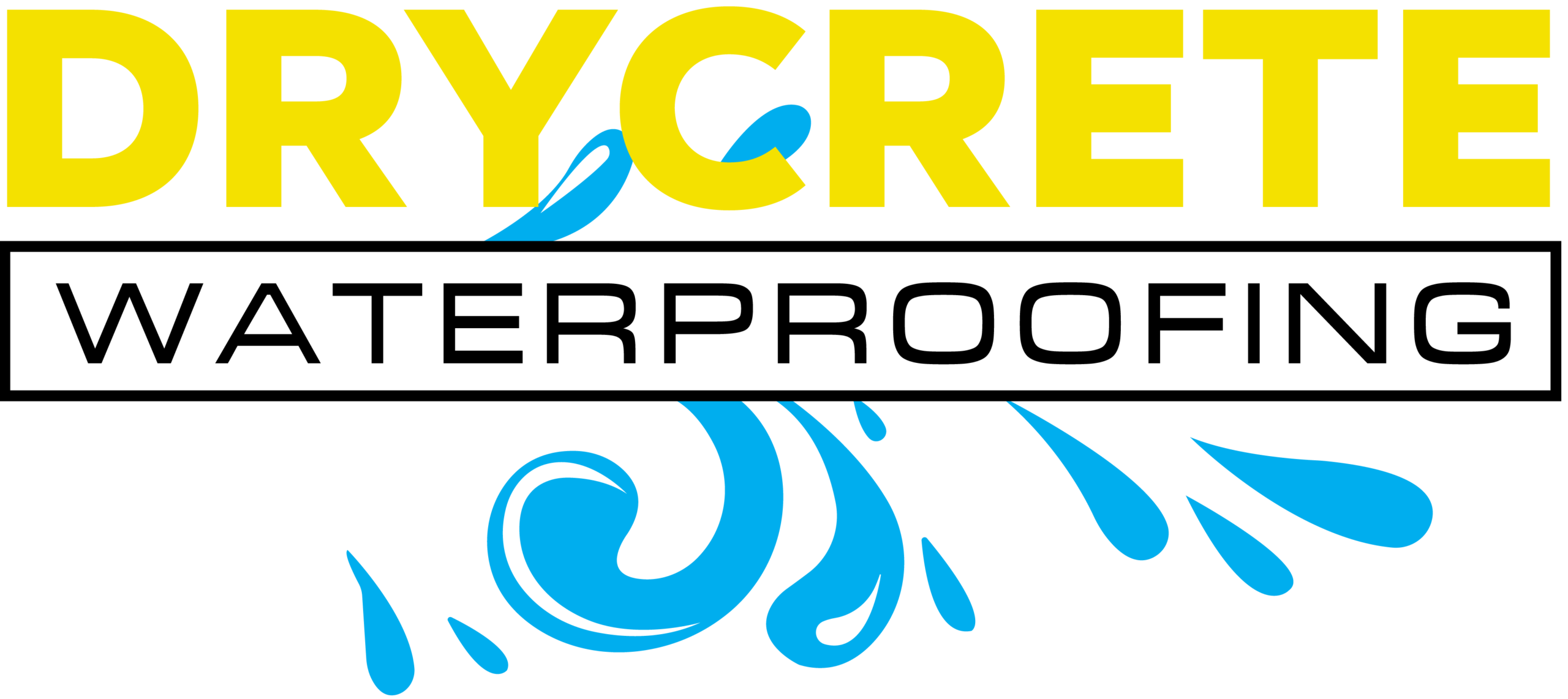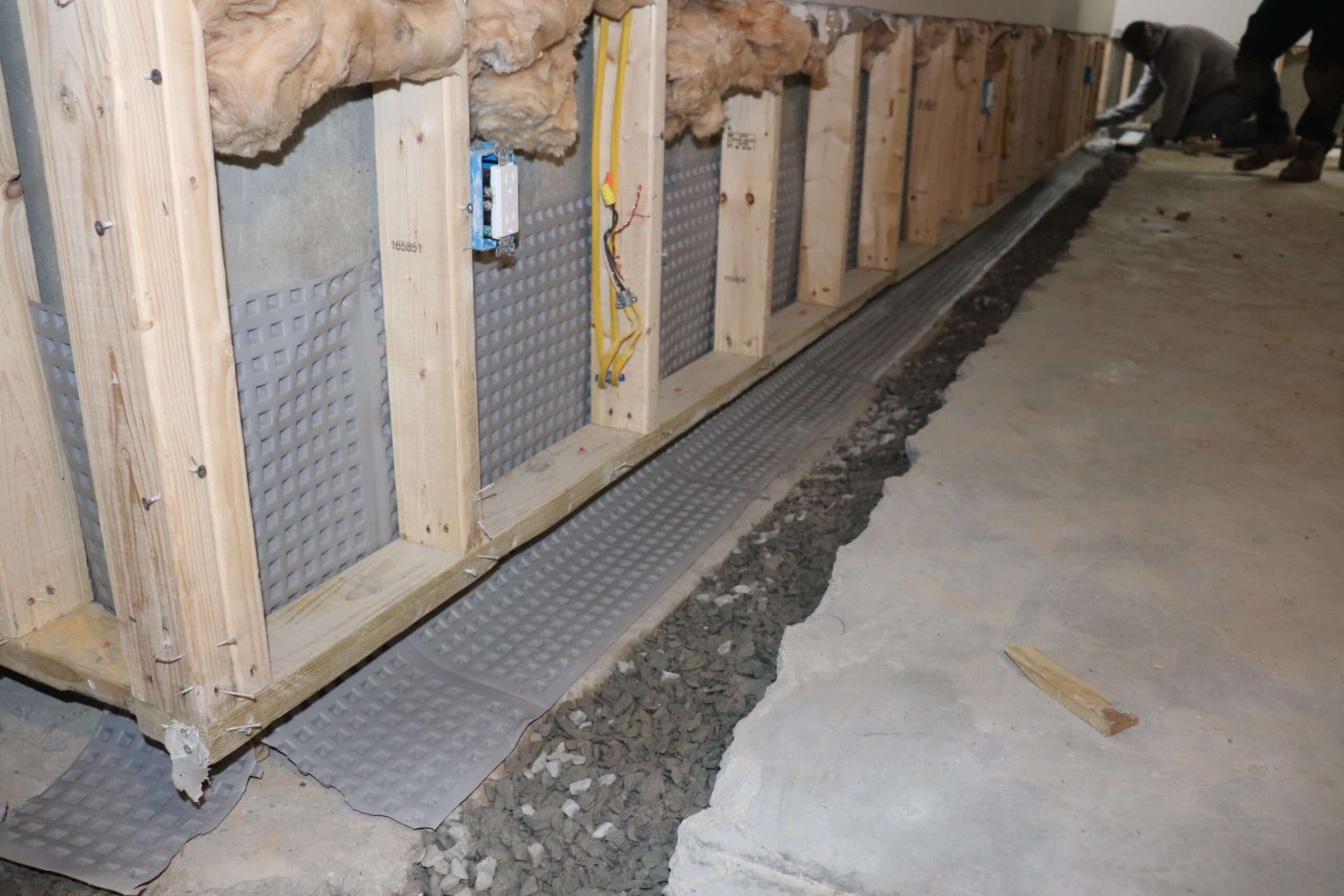Of all the tasks that you might consider undertaking when it comes to boosting your home’s value, ensuring the basement is watertight might not be at the top of your list. It’s understandable, you naturally want to focus on the showier areas where you feel like you’re getting the most bang for your buck. Decorating and upgrading the living space will certainly boost your home’s value, and definitely don’t sleep on building that curb appeal either, but if you’re asking yourself “is basement waterproofing worth it?” the answer is a resounding YES.
Understanding Basement Waterproofing
Before we get into how basement waterproofing can add value to your home, it’s important to understand what it involves.
On the most basic level, waterproofing is any system you put in place to manage water on your property. Unfortunately, basements will always be under a certain amount of threat from groundwater, so managing it is absolutely vital.
Some common methods you might consider include:
Interior Basement Waterproofing
- French Drains: A French drain is a perforated drain pipe in the ground designed to catch water under your slab and direct it to where you want it to go.
- Sump Pumps: A sump pump is a pump placed into a pit in the ground that runs when water reaches a certain level. The pump pumps water where you want it to go. Outside of your home.
- Vapor Barrier: A vapor barrier is a material used in building construction to prevent moisture from passing through walls, ceilings, and floors.
- Dehumidifiers: Air always contains a certain level of moisture. When it hits a cold surface, some of this forms condensation, threatening your basement walls. Dehumidifiers remove this moisture before it gets a chance to bead up on your walls.
- Crack Repair: As you might expect, cracks in your basement walls are a prime source of water ingress. Filling them blocks the water’s path into your home.
Exterior Basement Waterproofing
- Exterior French Drains: These horizontal drainpipes can be used to direct water away from your basement walls.
- Grading: Your home should have a gentle slope away from the walls to allow water to flow downhill where it can do no harm.
- Guttering and Downspouts: The rain which hits your roof has to go somewhere and guttering and downspouts ensure it doesn’t go into your basement.
- Exterior Membranes: Wrapping the exterior of your basement wall in a semi-permeable membrane keeps water out while allowing your walls to ‘breathe’.
The Direct Benefits of Waterproofing Your Basement
When it comes to answering the question “is basement waterproofing worth it” there are a number of benefits to consider:
Prevention of Water Damage
The key benefit and the biggest ‘yes’ to the question ‘is basement waterproofing worth it?’ is that a properly waterproofed basement is resistant to damage.
Water damage can lead to serious problems like:
- Ruined Finishes
- Mold growth
- Structural damage
When you consider the potential costs, both financial and in terms of health and stress, the question isn’t “does basement waterproofing add value?” It’s, “can I afford to not do this?”
Signs of water ingress and the damage it causes will knock thousands off the price that any potential buyer will be willing to offer. Even minor issues have a habit of spiralling, so it’s best to deal with them as a matter of urgency to protect your home’s value.
Mold and Mildew Prevention
Mold isn’t just unsightly and a little bit gross, it can lead to some serious health problems amongst those who are exposed to it. It will also ruin anything that you happen to be storing in your basement.
Not only are mold and mildewZ a risk to your health, they can seriously hurt your wallet too. Dealing with mold growth is a specialist job requiring careful consideration and as such, it doesn’t come cheap.
Any buyer considering your home will be massively put off if there are black spots on the basement walls. Who wants an unhealthy home?
Additional Functional Space
While most basements are simply used as storage, one of the really great things that can be done with proper waterproofing is turning them into an additional liveable space in your home. This is perhaps the most direct reason to answer yes to “is basement waterproofing worth it?”- an extra room will always boost your asking price.
Think of the possibilities- an extra bedroom, home cinema, games room, gym. The options are literally endless, and good waterproofing makes it all possible.
How Waterproofing Affects Home Value
So, as we’ve covered above, waterproofing your basement is most certainly worth it if you’re seeking to add value to your home. Quite simply, a waterproofed basement is more attractive to potential buyers than one with issues.
Signs of damp or water ingress in the basement can lower house prices by around tens of thousands of dollars – up to 25% less in fact.
So if you’re asking yourself does basement waterproofing add value and is it worth it, the answer is and emphatic ‘yes’.
Considerations Before Waterproofing
Of course, nothing in real estate is really that simple. There are a range of complex things to consider before you pull the trigger, especially if you’re considering waterproofing to boost value before a sale.
Cost and Return on Investment
If your primary consideration is getting the most money for your home, waterproofing can be a great way to boost that. That being said, there are a huge number of tasks that you could undertake and weighing up their costs vs the value they add is important.
As a general rule of thumb, the bigger the task the more effective it will be, but the more it will cost. Re-grading your home will work wonders, but unless it seriously needs doing it’s unlikely to boost your return by as big a percentage as installing a new concrete slab.
How much it costs will vary depending on what exactly you’re having done. Painting the interior with a crystalline solution may only set you back a few thousand dollars while regrading will be significantly more.
Choosing the Right Solution
With such a range of options, it’s important to narrow it down to what will sort the problem most effectively without blowing your budget. When it comes to adding value, you have to focus on cost efficiency after all.
The key to choosing the right method lies in assessing the situation properly- there’s no point in going in all heavy handed and carrying out the heavy-duty landscaping that re-grading entails when a tin of paint will sort the issue.
Wet spots appearing on the floor after heavy rain requires a different set of interventions than condensation forming on the walls. Getting a good idea of the issues your particular basement faces will make putting a cost effective solution in place that much easier.
Contact A Professional
When it comes to something as serious as your home’s value, especially when you’re considering a sale, it really is best to get the pros in.
Professional waterproofing companies will be able to assess your problems, make recommendations as to which methods will balance boosting value with cost and, should you decide to go ahead, provide you with all the paperwork your buyer may want to see.
A good waterproofing company will know how best to balance costs with effectiveness and that all important return on investment. Here’s what you should be looking for when dealing with any tradesman before selling up:
- Reviews: Do they come recommended? Check out google and local reviews sites to see what others who have worked with them have to say about the experience.
- Ask Questions: there’s no such thing as a stupid question, especially when you’re looking at up to 25% of your potential sale price. Anything you’re not sure on, a professional will be able to explain. If they’re not willing to answer, consider looking elsewhere.
In Conclusion:
If you’re considering selling up and moving on, there are huge number of things to think about and questions to ask and it can be easy to leave money on the table by missing things or making a mistake in where you focus your efforts.
One question that we’d beg you to ask yourself when it comes time to sell is “is basement waterproofing worth it?”. At roughly 25% of your home’s potential resale value when compared to houses which haven’t been waterproofed, we think the answer is nearly always “yes”.

